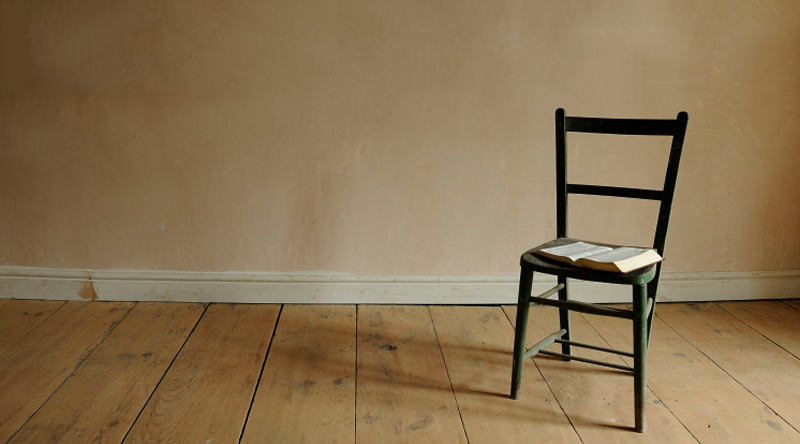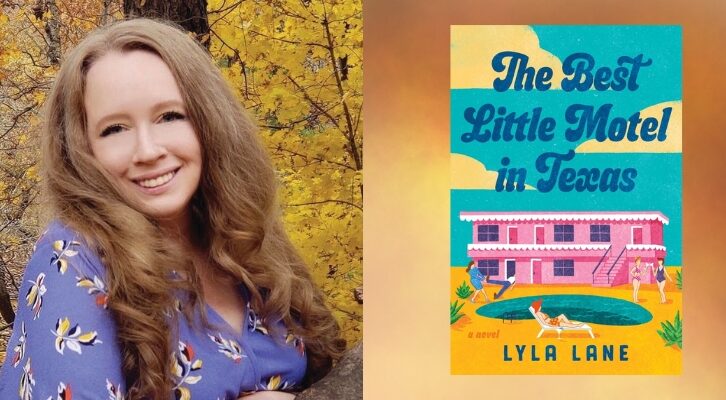
Finding a Writing Life of
One’s Own
“I was not writing as an act of defiance or service or claim to myself. I was writing because I wanted to.”
I am sitting on the bed in the bedroom that will soon not be mine, in the townhouse I will sign away in exchange for a swift custody agreement, for the chance to move on. It is not “my week” so I am trying to stay out of the way while downstairs, my almost ex-husband is making breakfast for our sons.
Across the world, in Bangladesh, disappointed by my decision, my parents are not speaking to me. I feel estranged from everyone, including myself. I feel my sadness acutely, a cold core of pulsing fear. And also: the chattering thrill of reaching the edge of the mapped territory of What I’m Supposed To Do. Downstairs there is clanging, the children’s high voices, their father’s low responses.
Upstairs, my fingers fly to compose an essay that will barely need editing. I write because the writing demands to be done. Only a small percentage of writing is this easy, this urgent. It’s the stuff that makes you thirsty for more, the luck that makes you think it feels good to be an artist.
*
When I moved into my own place, a two bedroom condo fifteen minutes from that townhouse, I met myself for the first time in more than a decade. I worked a full-time job teaching art and writing at military hospitals, pushing a heavy cart of art supplies onto wards, handing out poems to discuss with patients grappling with PTSD and moral injury.
Newly divorced, a full-time student, and dealing with the sudden death of my father, I did my reading in the very early morning hours before getting myself and the children ready for the day, edited on the sidelines of soccer games, and wrote on the bus to and from work, and on the weekends without my kids.
I became a writer in singlehood, when the only time I felt truly safe was when I was alone.
I was writing on the edges, I was writing to survive. I wrote my first book that way. It saved my life. It was not enough. I longed for uninterrupted time with myself. I wanted to experience being a writer who put writing in the middle of her day, in the middle of her life.
With two schoolchildren and little paid leave, the two-week minimum stay standard at most artist residencies was out of reach. I browsed lists and starred things I might apply to in a decade. Somewhere on some list, I came across a summer program at the Fine Arts Work Center out in Provincetown—a six-day commitment, the guidance of an accomplished writer—and, most importantly, far, far away from everything.
*
In a small unairconditioned apartment with painfully slow internet two blocks from Cape Cod Bay, I woke each morning before dawn, drank coffee while reading, then walked along the bay. I returned to sit with my laptop at the wooden table before showering and dressing and walking three blocks to Pearl Street for class at 9 am.
For three hours in a white-washed room, our instructor pushed us—a group of writers at various stages of our careers and lives—to write new and difficult things. When class ended at 12 pm, my classmates lingered, making plans for lunch and swimming, but I’d slip out to walk under the hot sun past the beach roses and bicycles back to my apartment. I’d toast a slice of bread and halve a boiled egg, eat a handful of potato chips, and sit at the table reviewing what I wrote that morning, the poems that would become my second book.
Sometimes I lay in bed, standing fan full blast against the afternoon sun, and nap. Sometimes I drove myself to the beach and watched the seals bobbing in and out of the water both worried they’d be eaten by a shark and wanting to see the carnage. At dusk I found a simple dinner then walked in the cemetery, hoping someone driving past would see me and mistake me for a ghost. I came home, rinsed sand from my body, wet my hair to cool me through the night.
During my week in Provincetown, everything I did was about my own needs: the walk on the boardwalk, the reading, the two showers, the naps, the spooking in the cemetery. I laughed at my own jokes and I made myself cry.
In Provincetown I was not writing because I had to squeeze in time to process what was happening in my life. I was not writing as an act of defiance or service or claim to myself. I was writing because I wanted to, because I was curious, because I could. It was my first glimmer of another way.
I came home and wrote on a post-it: “Your writing is not meant to be useful to anyone.” I stuck it on my bathroom mirror.
*
Two years ago, for the first time in the decade since my divorce, I moved in with a partner. I am wildly in love with Amanda. We both work from home most days—the military hospital job ended and I started a non-profit to continue the mission. Amanda’s and my home offices are connected by a bathroom. All day long, I quiet my impulse to burst into her office to talk to her and bother her and get her to laugh at my jokes. Telling her an interesting thing I’m thinking about is instantly gratifying. Shaping it into a piece of creative work is not.
The first six months after meeting her, I hardly wrote anything. We would find ourselves in bed on a Monday afternoon and laugh, “This is how industry fails.” When the chiding you’re not writing voice came knocking, I reminded myself that learning to love and be loved was my life’s work too. Living is my work. It didn’t ease the panic entirely, but it allowed me to turn back to her, to fall back into her, into the corniness of building a history with someone else. The absolute glee of being shocked, again and again, by how very much I like her face. By how happy I could be.
This is the healthiest, most secure, I’ve ever felt mentally. I have never written more sporadically.
I became a writer in singlehood, when the only time I felt truly safe was when I was alone. My children have grown, they are both adults now. I am able to take advantage of or construct longer residencies. I am the most stable I’ve ever been, professionally or personally. This is the healthiest, most secure, I’ve ever felt mentally. I have never written more sporadically.
*
Annie Dillard tells of papering the window of her office to keep herself focused. Jane Hirshfield writes of concentration as the transformative arc of a poem, voice as the result of listening carefully to one’s own thoughts. Grace Cavalieri cautions: everything you don’t write is standing in the way of the next thing you will write.
The only way to find space for writing when other work pays me more, needs me more, when the people in my life are nicer to me than my manuscript is, is to remind (or convince) myself that my own company also makes me giddy, and decide that is reason enough to dig through the layers of resistance, the layers of static between the world of relationships and my own wisest self.
So here I sit, at 4 am. It is dark outside and rain is falling. I pulled myself away from Amanda’s warm body to sit cross-legged in my office, on the edge of a day. The words don’t come easily, it is work in a way that my early cathartic writing was not. It requires preparation: a pitcher of coffee, a lit stick of incense, a journal to handwrite in, a few sun salutations. It requires discipline, constant gentle admonishment when the hankering to open a browser window arises, when my hand moves like a magnet toward my cell phone. It requires the reminder: I can. I want to keep pushing toward the edge of what I know.
*
I went back to FAWC last summer—as an instructor, this time. My ten spectacular students’ ages spanned six decades. I brought them my rituals: pranayama and sandalwood incense and a honey scented candle. The Ukrainian band DakhaBrakha. All morning we tried to stay in our dreambrains, to linger in the fog of the subconscious. We read great writing, and let the words hang in the air. I instructed them to be the weird, weirder, weirdest versions of themselves. I told them to figure out what they needed to be the most creative they could be and practice insisting on having just that.
My instructions were suggestions. They were here to listen to their own voices. They wrote and wrote and wrote. Phenomenal, strange, wonderful heartbreaking things: essays, villanelles, free verse. Letters. Then we breathed together. We closed with a three-minute dance party before we all went out into the sun, into the singular short lives we are each responsible for living.
Seema Reza
Seema Reza is the author of A Constellation of Half-Lives and When the World Breaks Open. Based in Maryland, she is the CEO of Community Building Art Works, an arts organization that encourages the use of the arts as a tool for narration, self-care and socialization among a military population struggling with emotional and physical injuries. An alumnus of Goddard College and VONA, her writing has been widely anthologized and has appeared in the Washington Post, McSweeney’s, The LA Review, Lit Hub and Electric Literature among others. Reza was the 2023 Pauli Murray Art for Social Justice Fellow at the Antiracism Research and Policy Center at American University. In 2017, she participated in the Fine Arts Work Center’s Summer Workshop program as a student and then returned as a writing instructor in 2023.



















